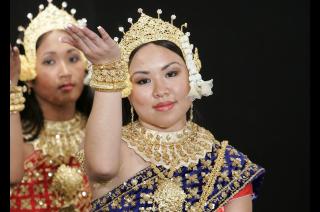What is tolerance?
Tolerance implies respect for others and their opinions and beliefs, which may differ from one’s own. It is appreciation of varying backgrounds of others without any hostilities or prejudices. Tolerance is the foundation for fundamental freedoms and universal human rights enjoyed by people. It is also a tool for fostering peace and recognising that harmony can exist despite dissimilarities amongst people.
How can tolerance be fostered?
Education - Ignorance about cultural, religious and ethnic diversity present around us can lead to insecurity. With education, there can be a better understanding of different traditions and beliefs and greater acceptance of them.
Legal framework - Strong and robust laws which punish acts of intolerance such as hate crimes and racial discrimination and which ensure equal access to law enforcement authorities and judiciary by all communities can ensure speedy justice for the victims.
Dismissing stereotypes - Stereotyping communities or having pre-set notions about them is often due to misinformation and fosters prejudices against different groups.
What is intolerance?
Intolerance is the unwillingness to accept views, beliefs or behaviour that is different from one’s own. It implies a disregard for the diversity and pluralism present in society. It can assume various forms, such as discrimination and marginalisation of minority groups, and stereotyping communities based on ethnic, sexual and cultural preferences.
Intolerance is at its most dangerous when it is used for political purposes. Intolerance can arise from the desire to assert superiority over communities which are different from one’s own. It can also originate from a fight between communities over scarce resources. The resultant effect can be extreme hatred and conflict within such communities. Competing ideologies built on the fear of ‘the other’ which blame other ethnic or religious groups for social, economic and political problems, have been at the root of many internal as well as cross-border conflicts across the world. Often such ideologies use propaganda, lies, skewed statistics and fallacious arguments to play upon people’s fears.
Intolerance of beliefs has been a contributory factor in conflicts such as:
- Israel-Palestine tension - The conflict which arose from competing territorial claims and religious differences between Jews and Arabs is one of the world’s longest running and most contentious conflicts.
- Sri Lankan conflict - The tension between the Sri Lankan government and the militant outfit - Liberation Tigers of Tamil Eelam (LTTE) over discrimination and abuses against Tamils led to a devastating civil war in the country.
- Rwandan genocide - The 1994 genocide was mass slaughter of over 800,000 members of the minority Tutsi community by the Hutu majority in Rwanda.
What does the UN do?
- The UN appoints independent experts or Special Rapporteurs on issues such as freedom of religion or belief; racism, racial discrimination, xenophobia and related intolerance; and on right to freedom of opinion and expression, who provide their independent analysis on several tolerance related issues.
- The United Nations Alliance of Civilizations works with governments, international organisations and civil society to support national and regional initiatives promoting diversity and cooperation. It is also active in the fight against extremism.
- UNESCO works to promote tolerance in a number of ways. Every two years, it awards the UNESCO-Madanjeet Singh Prize for the Promotion of Tolerance and Non-Violence which rewards significant activities in the scientific, artistic, cultural or communication fields aimed at the promotion of a spirit of tolerance and non-violence.
Case Study
The UN estimates that up to 100,000 people were killed in the nearly three decade long civil war between the LTTE and the Sri Lankan forces for creation of a separate Tamil state.
Despite the staggering numbers, Veerasingham Anandasangaree, a Sri Lankan national of Tamil origin played a vital role in fostering peace and tolerance in the region. He was credited with advocating the Tamil cause through peaceful means without associating with extremist LTTE forces that were also fighting for an independent Tamil state. As the leader of the Tamil United Liberation Front in 2002, a political party championing the causes of the Tamil minority in Sri Lanka; Anandasangaree continued to speak on Tamil-centric issues, without resorting to violence.
As recognition of his efforts, Anandasangaree was awarded the UNESCO-Madanjeet Singh prize for the promotion of tolerance and non-violence in 2006. The prize is instituted in the name of UNESCO Goodwill Ambassador, Madanjeet Singh in order to celebrate his unstinting commitment to promoting tolerance, peace and non-violence.
Photo: Rasmeay Sareaypheap Khmer Dance Troupe of Viet Nam performs at the opening ceremony of a cultural exhibition at UN Headquarters. (UN Photo/Mark Garten)

